___________________
report
filed by Robert J. Lewis and Marcel Dubois

Why a
nine day jazz festival just before the Montreal Jazz Festival,
the biggest and most celebrated in the world? The simple answer
is Aretha Franklin, Steely Dan, Daniel Lanois, Al Green, Public
Enemy, Lewis Furey and Tortured Soul, names which have very little
or nothing to do with jazz, especially in the original sense of
the word, a deficit creatively addressed by Montreal’s gritty
Off
Jazz Festival that begins mid-June.
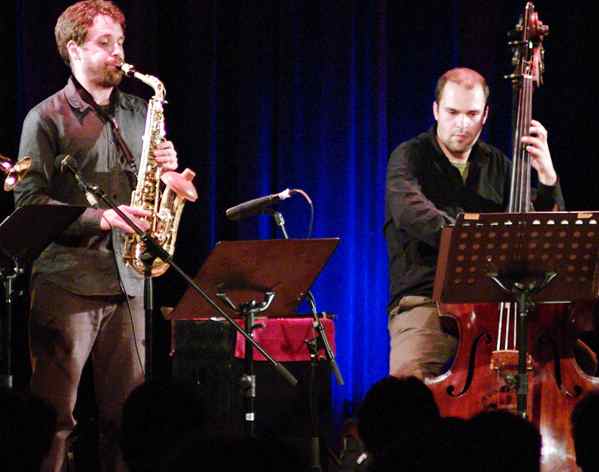 With
the Grand Prix traditionally inaugurating the summer and festival
season, the great city of Montreal offers everything and more
that go so well with its music: the cafes and bars have moved
their tables and chairs outside, there’s a whiff of Europe
in the air, the striking architecture has warmed up to the sun
and the most beautiful women on the continent are strutting their
stuff before appreciative onlookers, some of whom make it a point
of attending the Off Jazz Festival.
With
the Grand Prix traditionally inaugurating the summer and festival
season, the great city of Montreal offers everything and more
that go so well with its music: the cafes and bars have moved
their tables and chairs outside, there’s a whiff of Europe
in the air, the striking architecture has warmed up to the sun
and the most beautiful women on the continent are strutting their
stuff before appreciative onlookers, some of whom make it a point
of attending the Off Jazz Festival.
The Off’s
founding philosophy is to provide space for original music that
deserves a wider audience while stretching the boundaries of what
we commonly refer to as jazz. At the same time, it refuses to
cater to audiences whose tastes have been informed by the popular
music of the time. What The Off does so well like no other jazz
festival is to challenge our conventional views on what constitutes
music and asks what is the nature of the relationship between
vibrations of sound and aesthetics.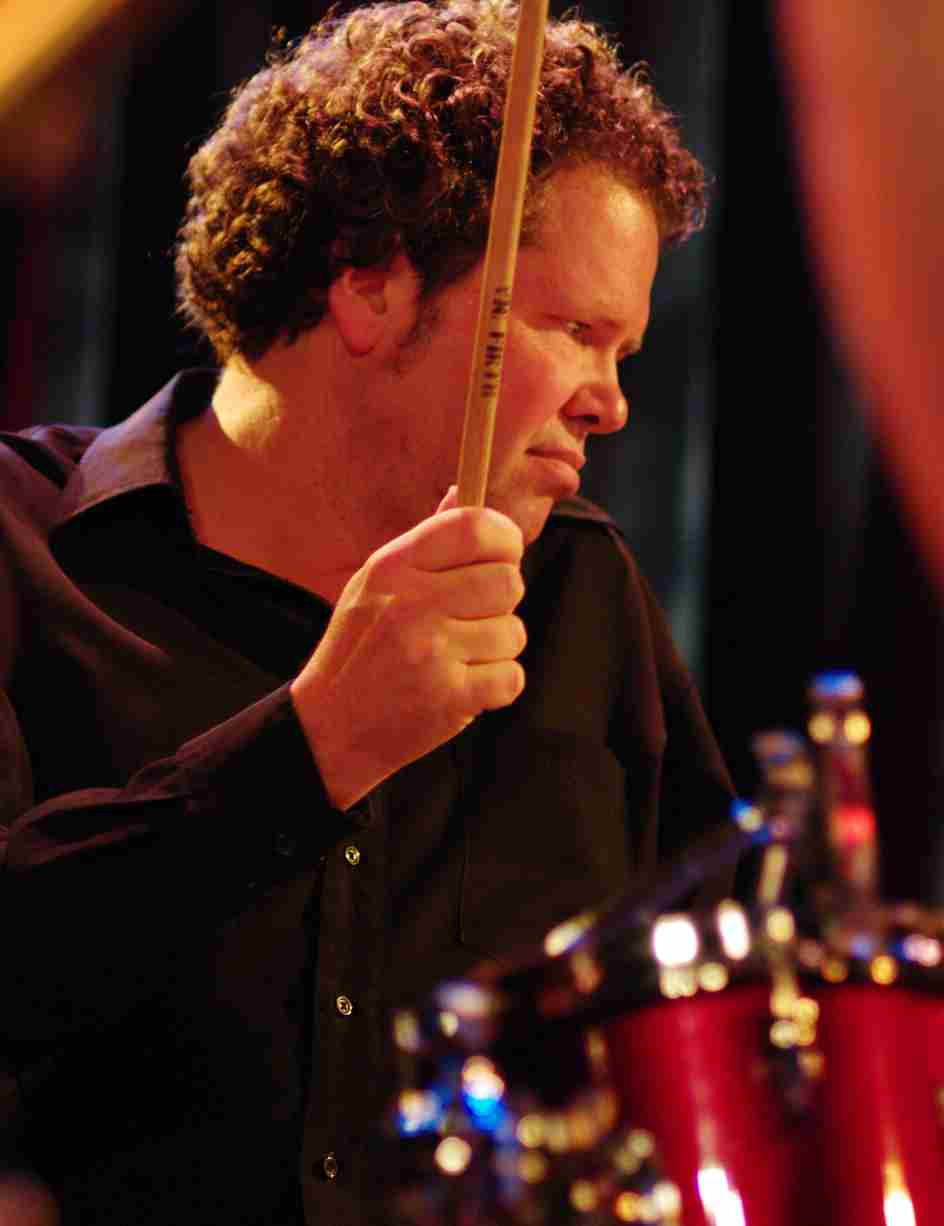
On any
given night you might find yourself listening to controlled variations
on the theme of radio static, appositely punctuated with air notes
blown through a saxophone, backed up by turntabling and a percussionist
who creates his sounds through friction as opposed to tapping:
rubbing a drum stick against a wired cymbal. Such was the music
offered by Philippe Lauzier’s Quartet, whose playlist will
appeal to listeners trying to situate themselves in a world that
is rapidly turning into an unrecognizable habitat.
The group
Quarteski featured a bass player who ingeniously turned his instrument
into the equivalent of Jackson Pollack’s brush: Pierre-Yves
Martel made his bow behave like a machete as he cut and hacked
at his upright bass’s thick and unwieldy strings to the
effect that the voice that exploded out of his instrument sounded
like an angry god looking down at his botched creation. 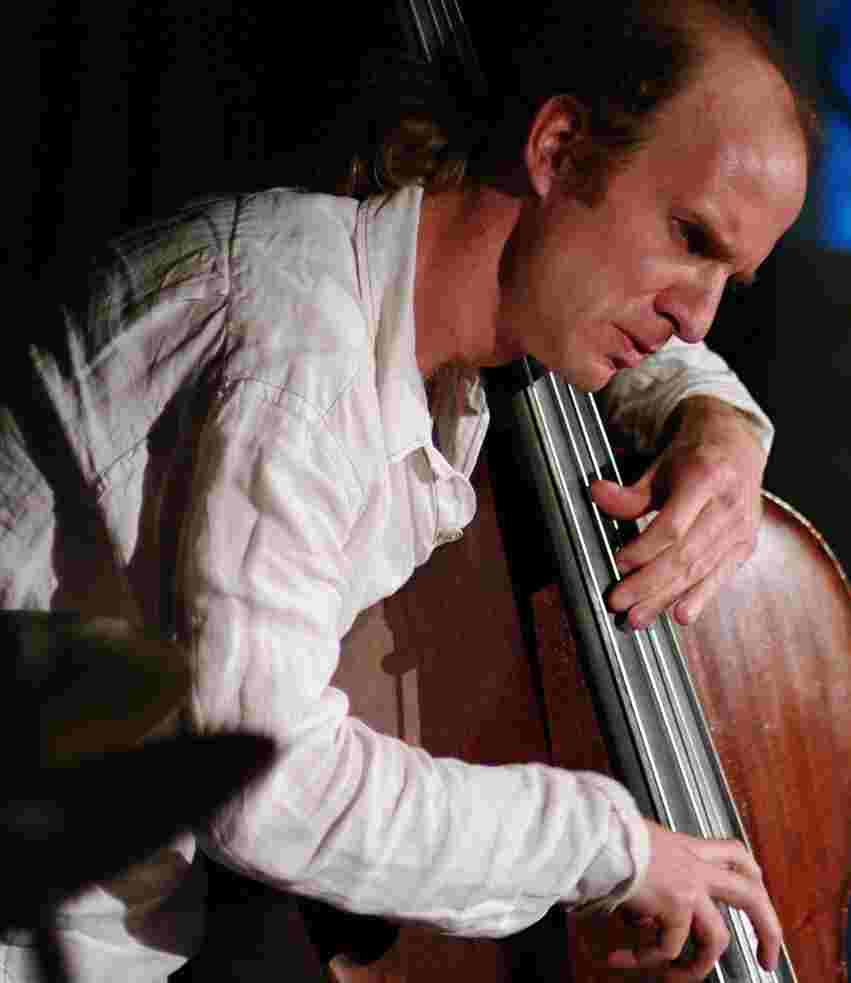 From
Sun Ra to the groups mentioned above, the dictum that jazz is
an acquired taste goes unchallenged.
From
Sun Ra to the groups mentioned above, the dictum that jazz is
an acquired taste goes unchallenged.
The festival
took place in four venues, with the Pub Saint-Ciboire and Dieze
Onze offering more conventional jazz; the city's celebrated alternative
music venue, La
Sala Rossa, was reserved for special events (Sun
Ra), while the Lion d’Or, that featured two concerts/evening,
was a potpourri of straight jazz, free jazz, Arabic, classical,
musical and poetry – representing a daunting and daring
programming that left no doubt that jazz continues to renew and
reinvent itself, the sine qua non of any vital music.
Musical
highlights were provided by 5ieme Route Bleue, whose music was
based on the Arabic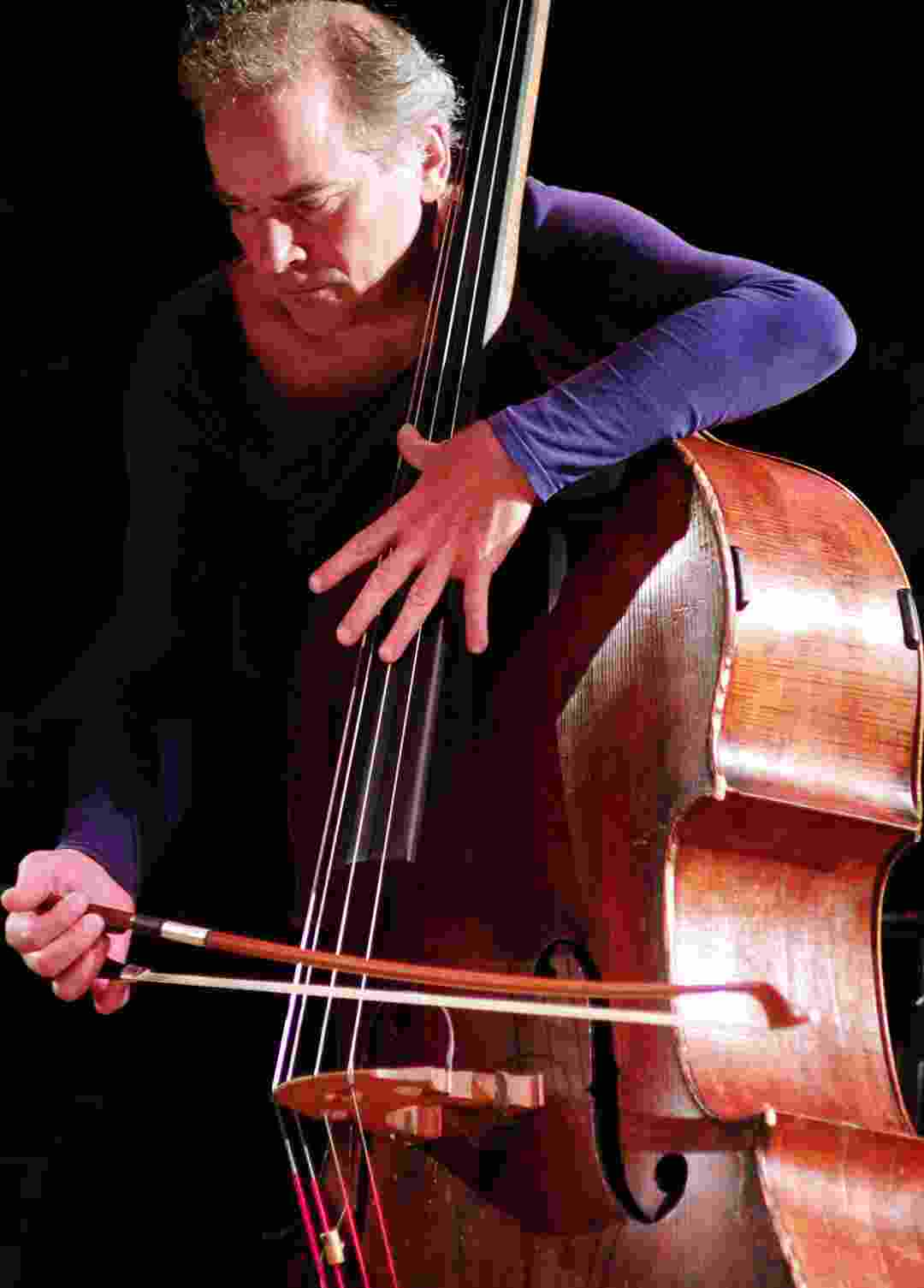 interval but wonderfully receptive to the western temperament.
The inspired listening between the musicians was just as important
as the playing. Austrian Peter Herbert provided the best bass
solo of the year, and single handedly turned bass solo detractors
into believers. Einmalig, ausgezeichnet, I say.
interval but wonderfully receptive to the western temperament.
The inspired listening between the musicians was just as important
as the playing. Austrian Peter Herbert provided the best bass
solo of the year, and single handedly turned bass solo detractors
into believers. Einmalig, ausgezeichnet, I say.
Saxophonist
Chet Doxas and his group BYPRODUCT,
winners of the festival’s coveted Francois-Marcaurelle Prize,
expanded into a septet (trio + string section) for his memorable
homage to existentialist philosopher Jean Paul Sartre. Doxas radiantly
demonstrated the natural compatibility between complex literary
and philosophical ideas and their musical counterparts. 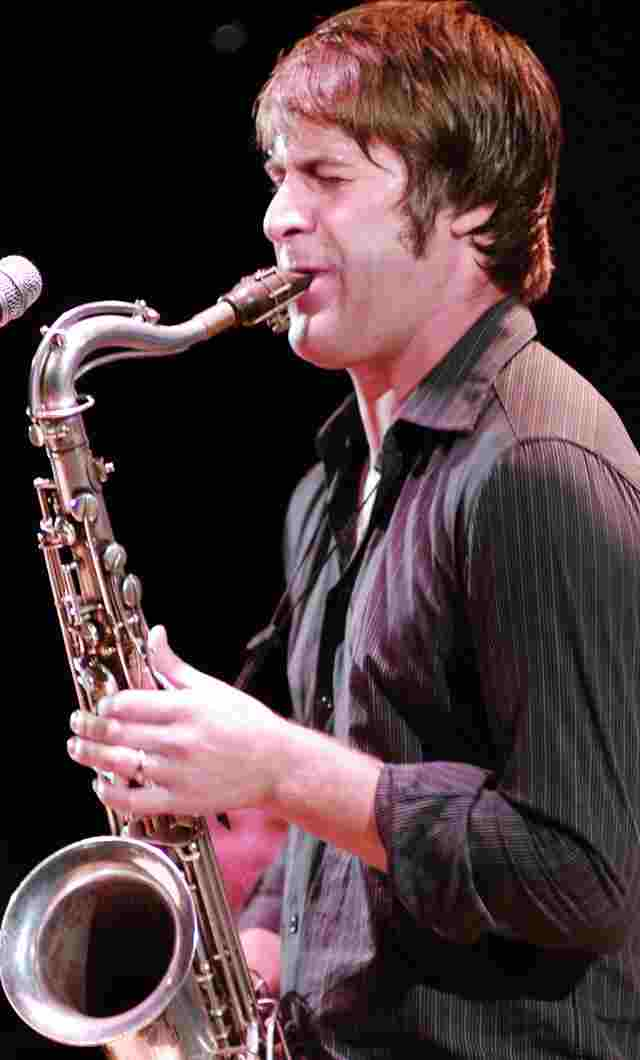 There’s
no telling how far Doxas -- not yet 30 -- as a player and composer
can go. The highly affecting outer movements of his new work were
written in the strict classical tradition. Given the disarrayed
state of modern classical, some of us, I’m sure, are hoping
that Doxas will make the 4-movement symphony his next project.
There’s
no telling how far Doxas -- not yet 30 -- as a player and composer
can go. The highly affecting outer movements of his new work were
written in the strict classical tradition. Given the disarrayed
state of modern classical, some of us, I’m sure, are hoping
that Doxas will make the 4-movement symphony his next project.
In “Project
Riel” bassist/composer Norman Guilbeault combined theatre
and music to rehabilitate the image of Louis Riel. Two actors,
reading from archival material, were backed up by 11 musicians,
who appealed to the folk music of the time as well as modern motifs
in support of the riveting dialogue. “Project Riel,”
as a pedagogical tour de force that has already traveled
across Canada, definitely deserves major consideration for the
History Channel or Bravo TV.
To President
Christophe Papadimitriou and those who helped program the festival,
they are to be congratulated for their vision and leadership role
in making available challenging music that curious and willing
listeners might otherwise be deprived of. Musicians on the cutting
edge need all the support and exposure they can get; they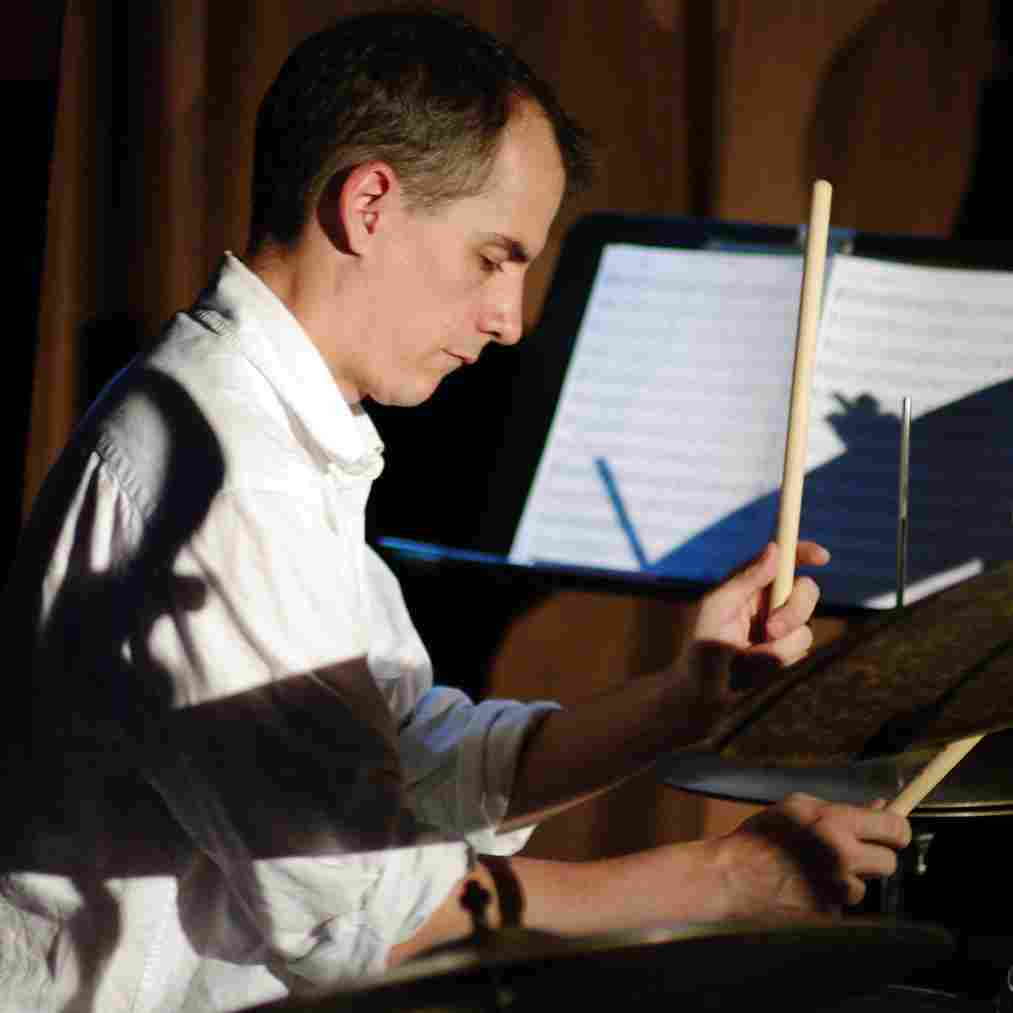 dedicate their lives to fighting audiences whose tastes have been
informed by music whose often first effect is to dull the ear.
At the same time, to help novitiates better choose their music,
the organizers might want to consider packaging the concerts by
themes and category as well as providing more precise information
in their booklet.
dedicate their lives to fighting audiences whose tastes have been
informed by music whose often first effect is to dull the ear.
At the same time, to help novitiates better choose their music,
the organizers might want to consider packaging the concerts by
themes and category as well as providing more precise information
in their booklet.
If there
was a single musical theme that emerged from this year’s
9th edition of The Off , it was exhibited in the many highly original
and arresting musical portraits of the times we live in, where
tough truths that some 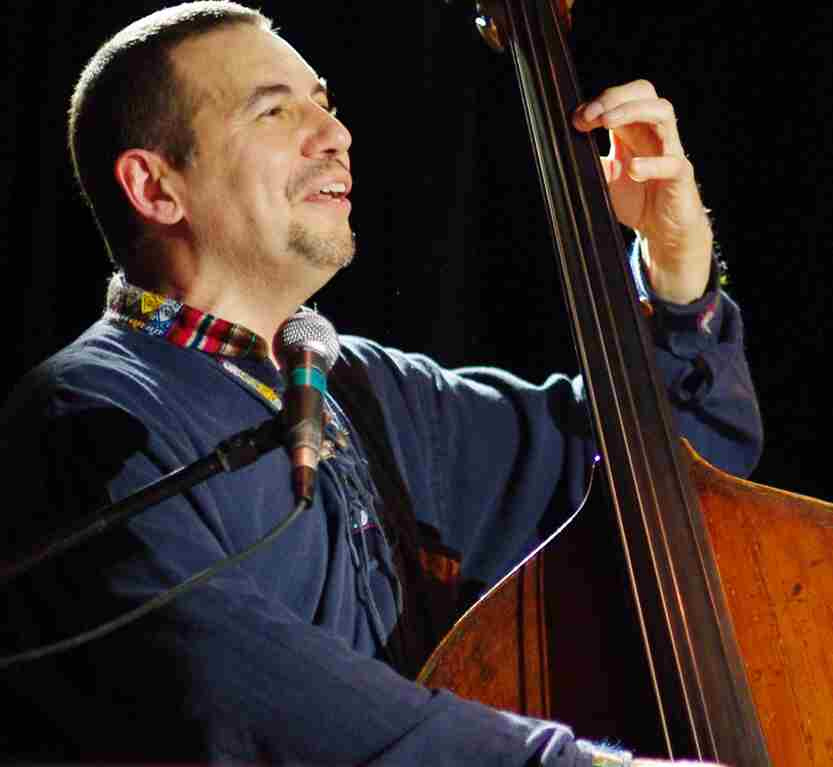 of
us would rather not face got their room with a view -- and more,
in large part because the Off musicians were provided the space
and latitude to dedicate themselves to the task of finding their
own voice and identity in a world where conformity has never been
so impositional.
of
us would rather not face got their room with a view -- and more,
in large part because the Off musicians were provided the space
and latitude to dedicate themselves to the task of finding their
own voice and identity in a world where conformity has never been
so impositional.
Those
who attended this year’s Off emerged wiser and more tolerant
of both music and life, a hard earned result that speaks to the
transformative power of art.
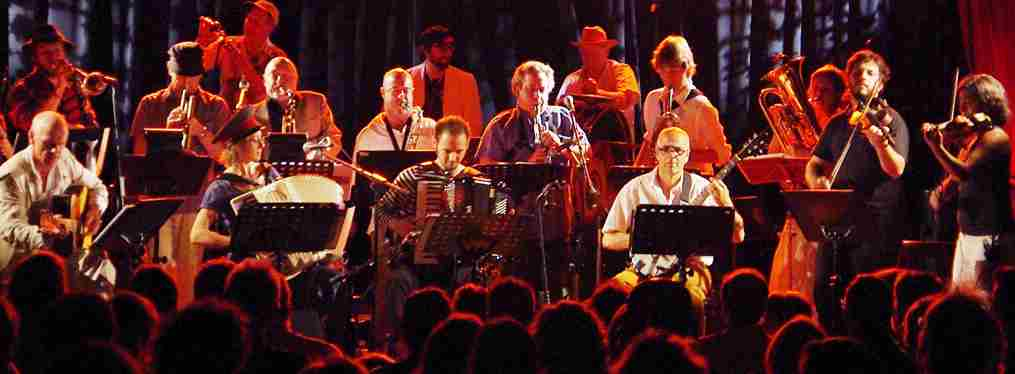
PHOTOS
© MARCEL DUBOIS